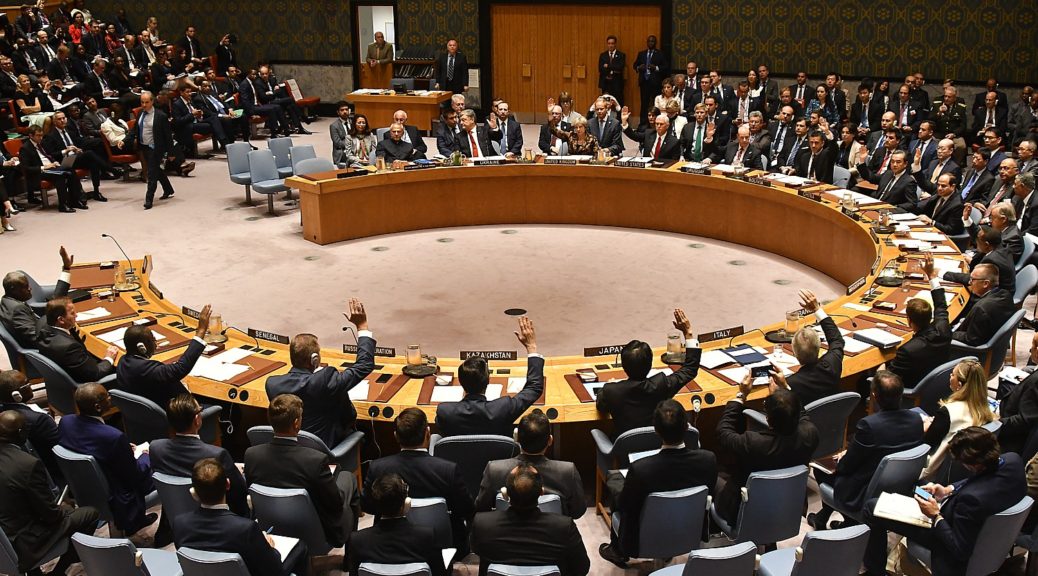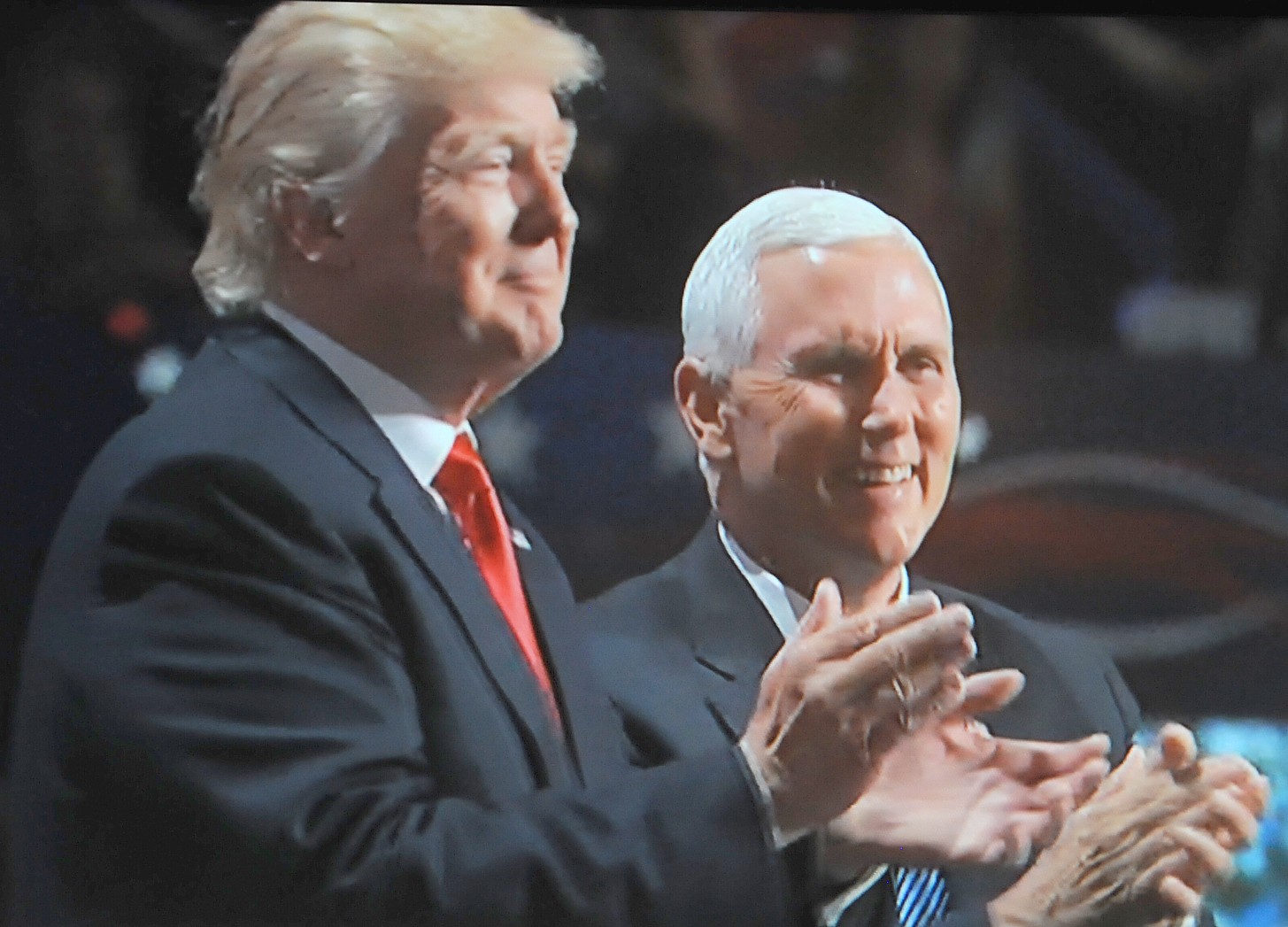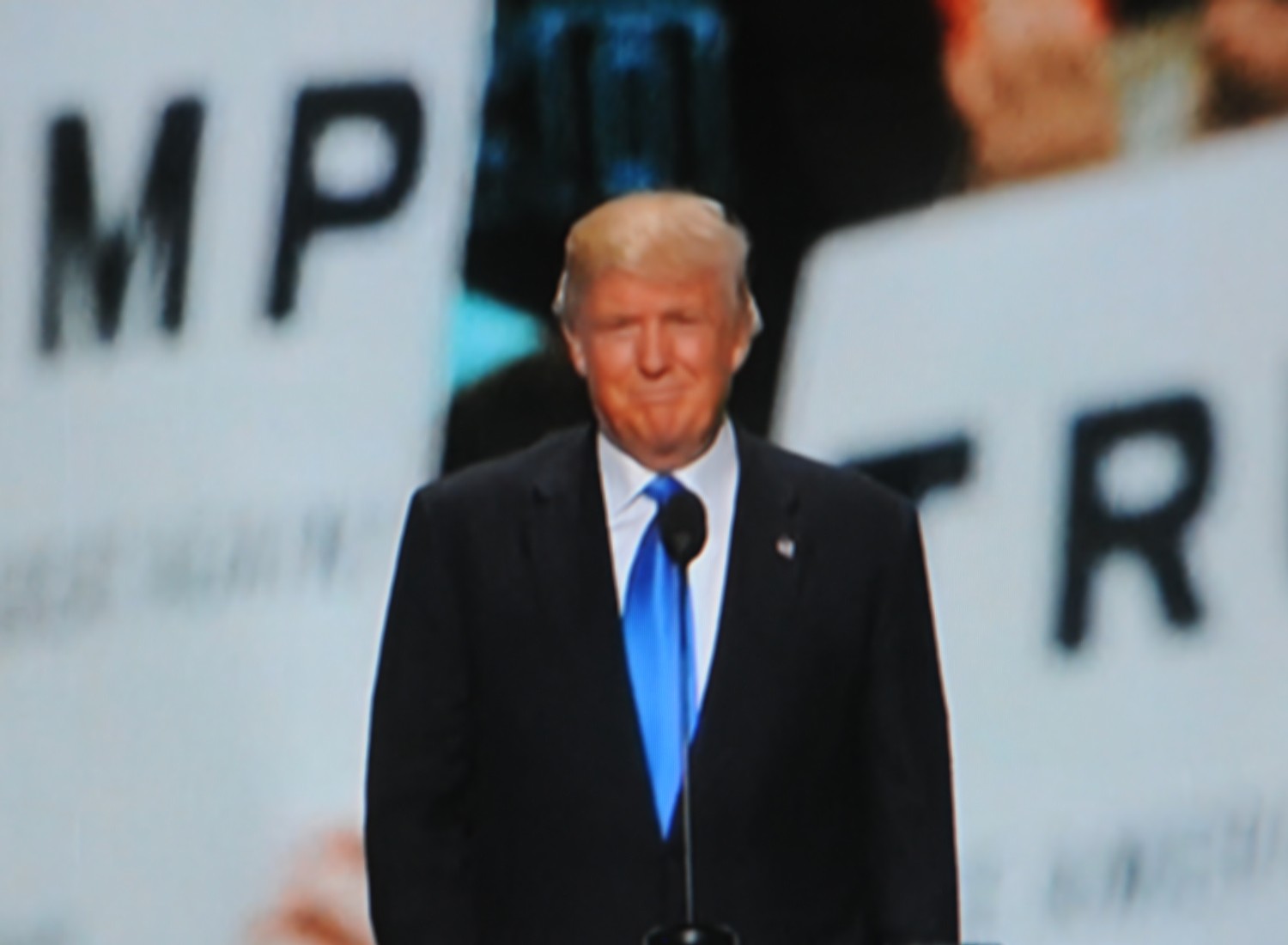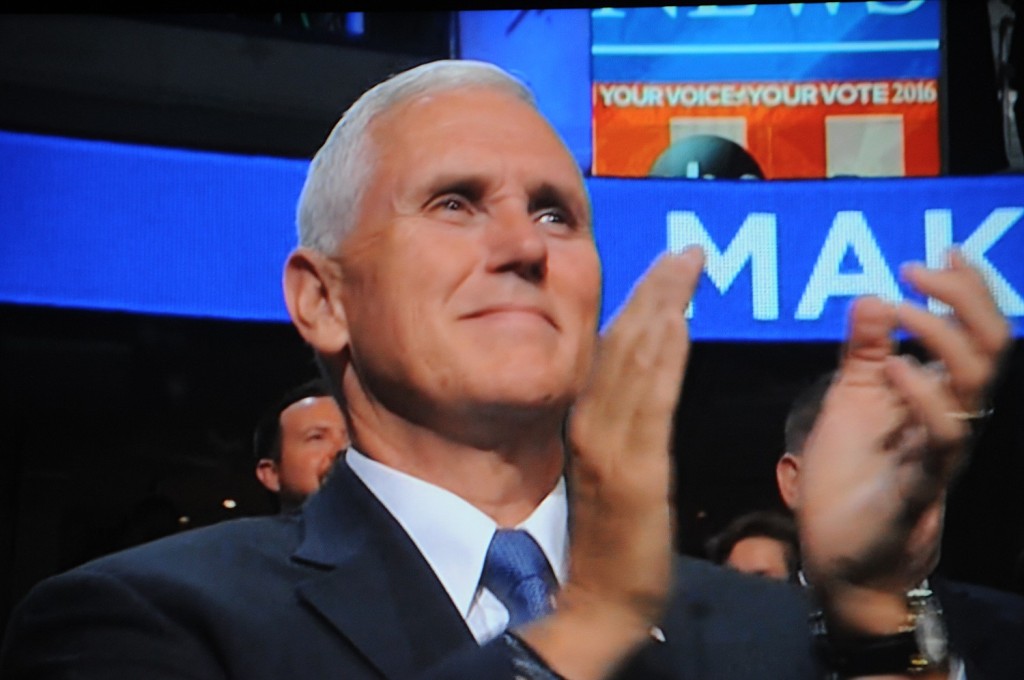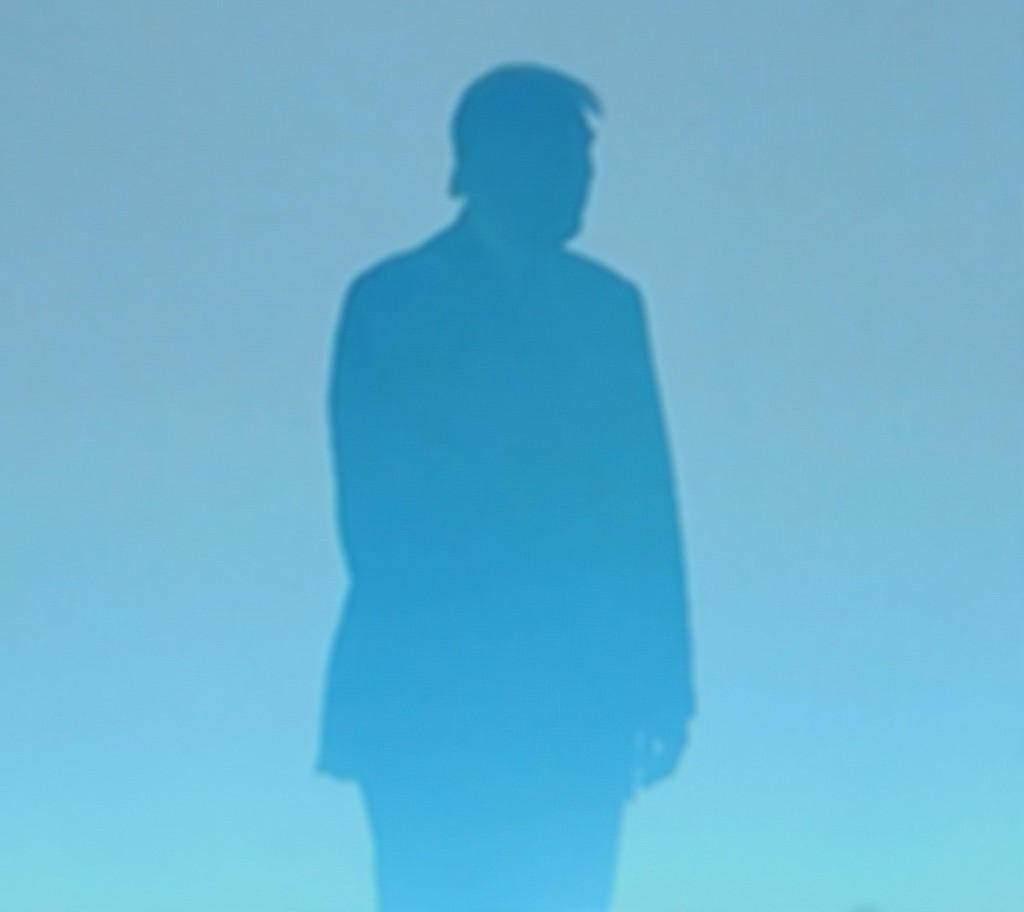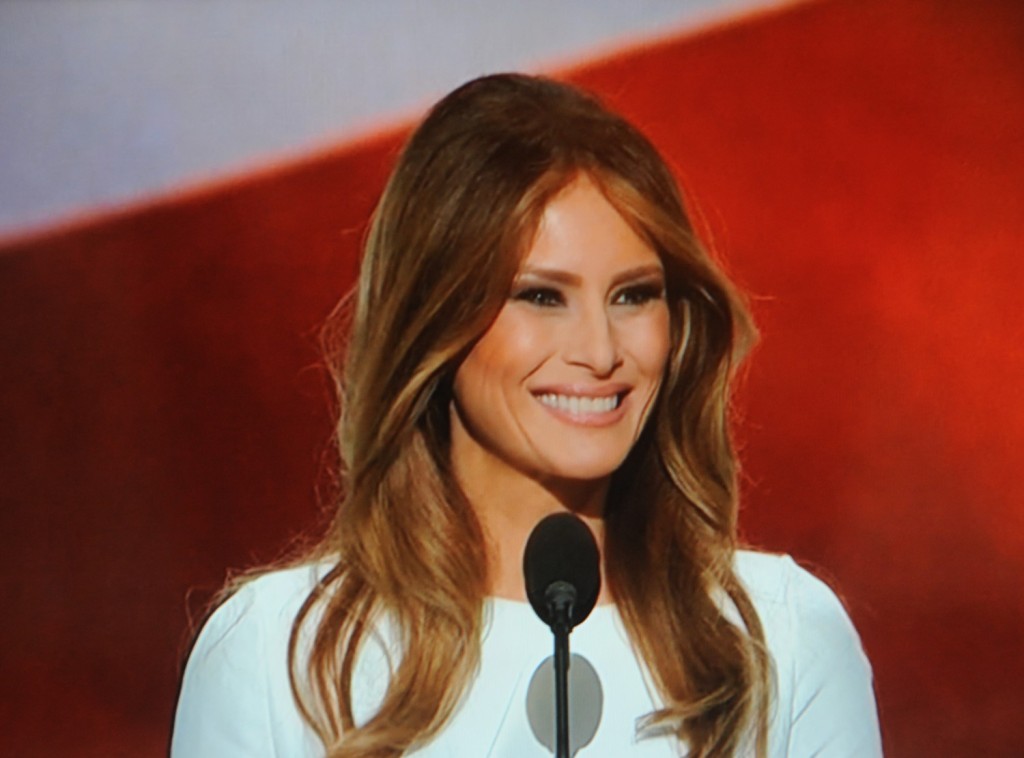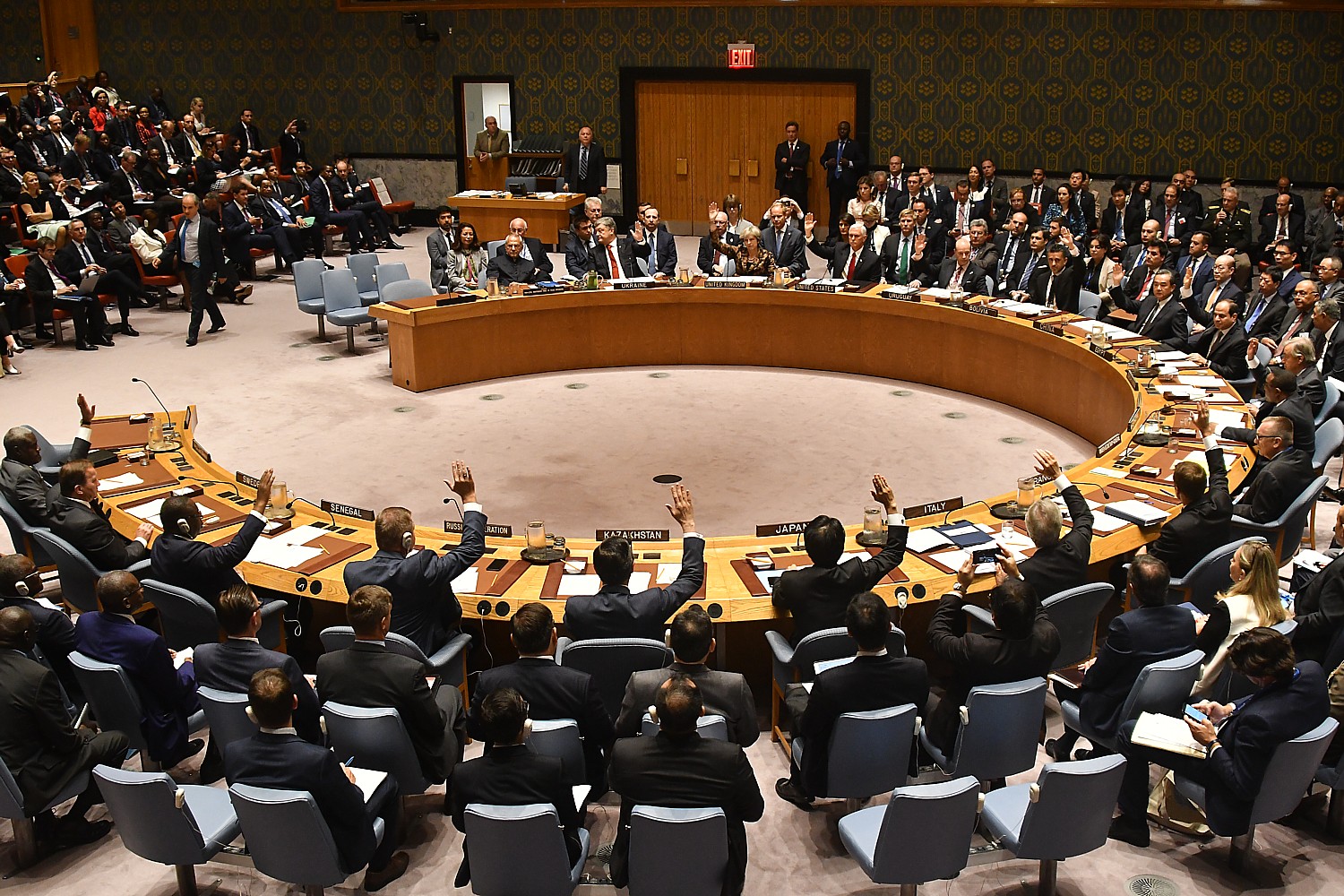
The UN Security Council unanimously adopted Resolution 2378 (2017) to reform United Nations peacekeeping operations (such as the famed Blue Helmets), that the principle of the “primacy of politics” — including through mediation, ceasefire monitoring and assisting in the implementation of peace accords — should be the hallmark of the United Nations approach to resolving conflict.
United States Vice President Mike Pence who gave remarks to the Council, held up his hand to vote in favor of the resolution. The US has been arguing in favor of reforming operations and finances of UN operations.
The Council noted that the prevention of conflict remained a primary responsibility of States, and actions undertaken within the framework of conflict prevention by the Organization should support and complement conflict-prevention roles of national Governments. It also reaffirmed the duty of all States to settle international disputes by peaceful means, and recognized that the good offices of the Secretary-General could help resolve conflict.
The Council took note of the Secretary-General’s initiatives to pursue the structural reform of the Secretariat to reinforce the United Nations peace and security architecture. It also underlined the importance of adequate implementation and follow up of peacekeeping reform in accordance with existing mandates and procedures.
The Council requested that the Secretary-General provide a comprehensive annual briefing to the 15-nation organ on reform of United Nations peacekeeping every 12 months to be followed by a debate. It also underscored the need to enhance the efficiency of United Nations peacekeeping by improving mission planning and increasing the number of relevant pledges of capabilities.
By other terms, the Council reiterated that regional organizations have the responsibility to secure human, financial, logistical and other resources for their organizations, and recognized that ad hoc and unpredictable financing arrangements for African Union-led peace support operations authorized by the Security Council and consistent with Chapter VIII of the Charter may impact the effectiveness of those peace support operations.
The Council also requested that the Secretary-General, in coordination with the African Union, should present in his next Report on Strengthening the Partnership between the United Nations and the African Union on Issues of Peace and Security in Africa, including the Work of the United Nations Office to the African Union, a reporting framework that would establish clear, consistent and predictable reporting channels, including fiduciary and mandate delivery, between the Secretariat, the Commission and the two Councils, as well as standardized reporting requirements.
Prime Minister Hailemariam Desalegn of Ethiopia, Council President for September, said the 15-nation organ should send a clear message of support for peacekeeping reform efforts. Practical steps, such as forging new partnerships, were critical as the Organization could not deal with emerging challenges to peace alone.
Vice-President Michael R. Pence of the United States also called for fundamental reforms to peacekeeping, saying that, when a mission succeeded, its work should not be prolonged, and that those not fulfilling Council mandates should be closed. He spent much of his remarks re-stating points that President Donald Trump had made in his address to the General Assembly the day before.

Speaking about current world events, he noted the issues surrounding the terrorist attacks occurring in Europe as well as the ballistic missile deployments of the Democratic People’s Republic of Korea. He added that, if the United States was forced to defend itself and its allies, it would do so “with military power that is effective and overwhelming,” repeating the points Trump had made.
Sergey V. Lavrov, Minister for Foreign Affairs of the Russian Federation, said that his country believed settling conflicts must be through political processes, including using national dialogue. “Blue Helmets” should only be deployed with the permission of the relevant State and, given the use of intelligence units in peacekeeping, how information was controlled and maintained must be closely examined.
President of Ukraine Petro Poroshenko was largely ignored in his pleas for UN peacekeeping assistance to stave off Russian Federation’s aggression that had caused tens of thousands of casualties and the displacement of some 1.8 million people. He reaffirmed his request to the Council to deploy a United Nations operation and obtain a withdrawal of all foreign personnel from his country to restore its sovereignty.
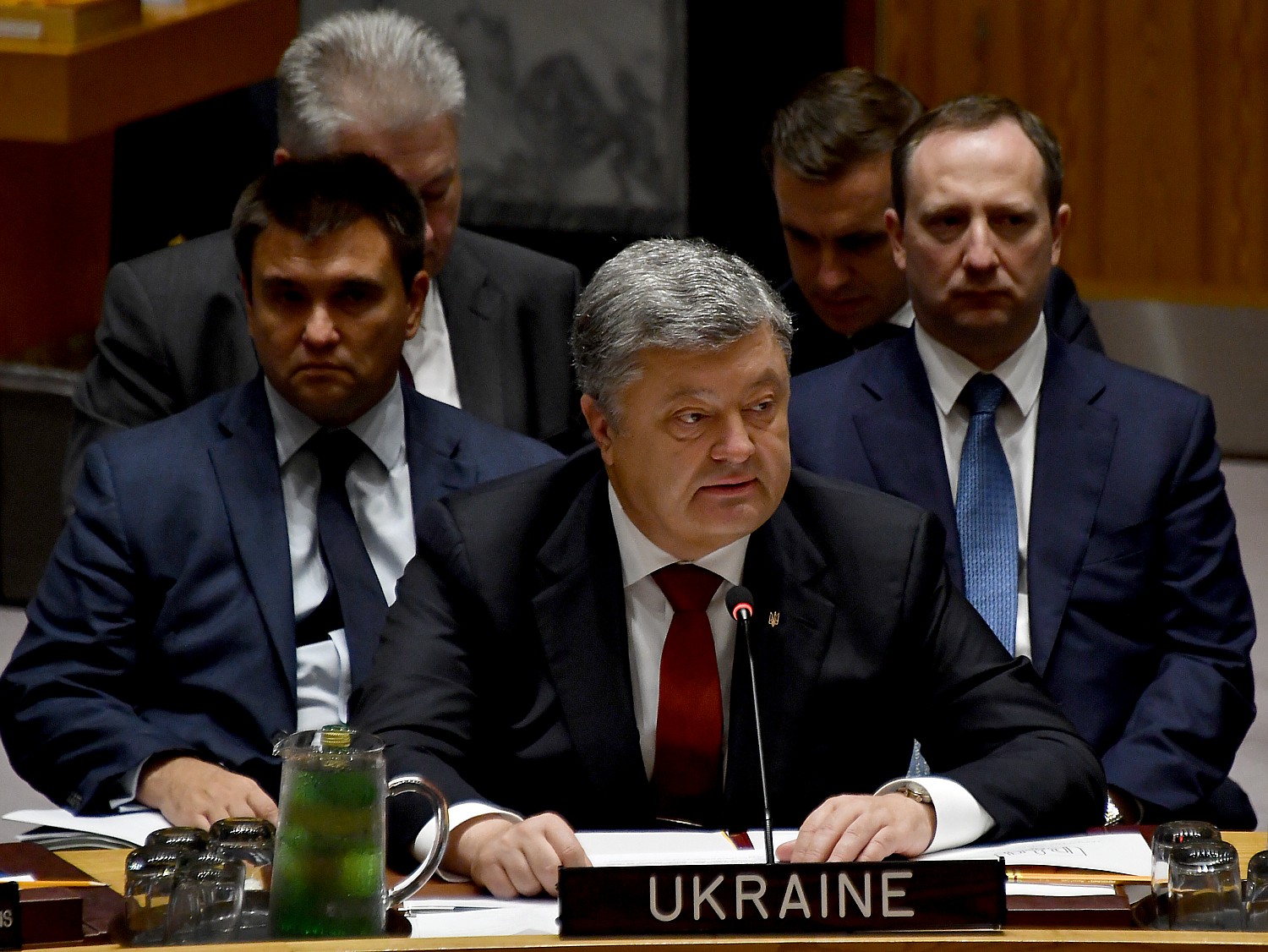
President Kersti Kaljulaid of Estonia emphasized the benefits of reforms, pointing out that research proved that peacekeeping operations not only reduced the numbers of civilians killed, but were ultimately cost effective. The United Nations peacekeeping budget was less than 0.5 per cent of global military spending, and that figure was shared among all 193 Member States.
Several delegations, including those of Sweden and the United Kingdom, stressed the importance of the inclusion of women in peacekeeping. Prime Minister Stefan Löfven of Sweden said that 70 years of peacekeeping had shown that the full, equal and active participation of women was vital to its success. Prime Minister Theresa May of the United Kingdom underscored the importance of including women in peacekeeping operations, as well as providing all troops with the equipment needed.
Tarō Kōno, Minister for Foreign Affairs of Japan, also highlighted the importance of women in peacekeeping, as well as youth, given that those most affected by conflicts were women and children. Japan had plans to host an outreach seminar to encourage the promotion of women to mission leadership positions.
President Jacob Zuma of South Africa underscored the progress made through the partnership of the African Union with the United Nations, noting the importance of predictable financing for the Union that was authorized by the Council. The Union’s Peace Fund should also be reinvigorated to spur its work on mediation and preventative diplomacy. Wang Yi, Minister for Foreign Affairs of China, said that the Council should develop a way to finance African Union operations.
Speaking before the resolution’s adoption, Secretary-General António Guterres said that peacekeeping was a highly cost-effective instrument. The United Nations was often the sole party to act in peace operations, addressing urgent situations while contributing to long-term solutions. However, reform was needed and that would require the Organization make several critical shifts, the first being the recognition of the primacy of politics. Peace operations should be deployed in support of active diplomatic efforts, rather than as a substitute, he said. In addition, if the Organization was more effective at prevention, it could reduce the danger faced by colleagues in uniform. Peace operations, he noted, should be prepared, with better mobility, equipment and intelligence.
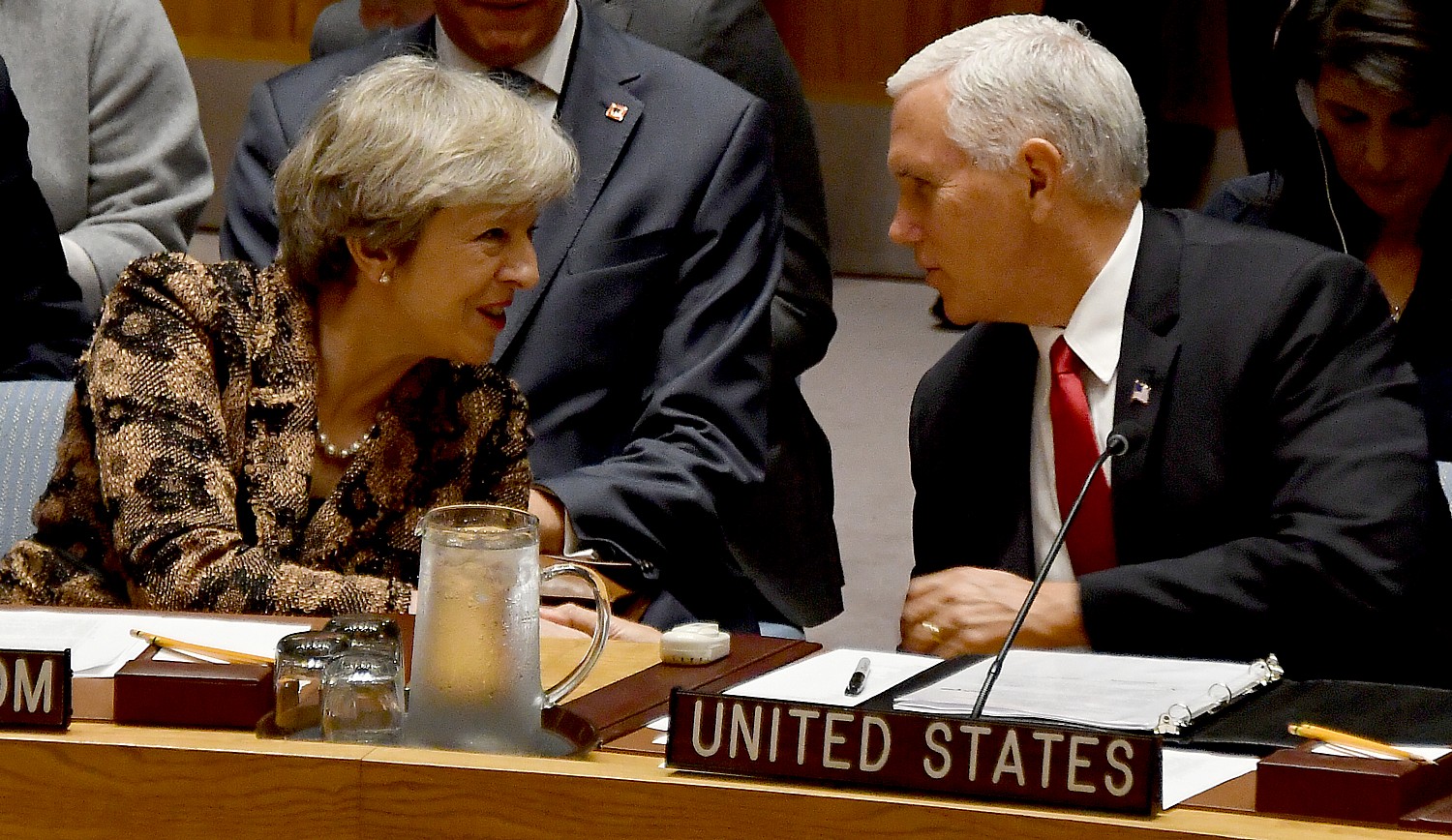
Moussa Faki Mahamat, Chairperson of the African Union Commission, said that the Council debate provided the chance to examine financing approaches and bolster the partnership with the United Nations. The Union’s peace operations should be supported through United Nations assessed contributions, he said, noting that sustainable financing was essential for sustainable solutions. For that reason, judicious decisions about individual missions such as Mali and the Central African Republic should be made to ensure a fair approach to financing.
José Ramos-Horta, Chair of the High-Level Independent Panel on Peace Operations, noted that the current Secretary-General had made a commitment to prevention, as well as the “surge of diplomacy”. That had been reflected in his insistence on a system-wide commitment to that prevention. The three peace and security reviews of peace operations all converged on that need for conflict prevention. The United Nations should invest in its own capacities for prevention and mediation and those core functions should be funded through the Organization’s regular budget. Furthermore, the Council’s decisions in mandating peace operations based on such planning and reviews should always reflect the primacy of politics, he said, hoping the Council would be stronger in its insistence upon and support for the political strategies that peace operations were deployed to pursue.
Also speaking today were Heads of State and Government, as well as other high-level officials from Senegal, Egypt, Ukraine, Italy, Kazakhstan, France, Uruguay, Indonesia, Nepal, Norway and Lithuania. The representative of Bolivia also spoke.
The meeting began at 10:07 a.m. and ended at 1:33 p.m.
Briefings
ANTÓNIO GUTERRES, Secretary-General of the United Nations, thanked Ethiopia for being at the frontline of some of the most challenging peacekeeping missions of the United Nations. The Security Council was gathered today to fortify that flagship activity. Fifty-five peacekeeping missions had successfully completed their mandates, while four were soon to close. A smooth transition in those missions was crucial. Peacekeeping, he noted, was a highly cost-effective instrument. The United Nations was often the sole party to act in peace operations, addressing urgent situations while contributing to long-term solutions.
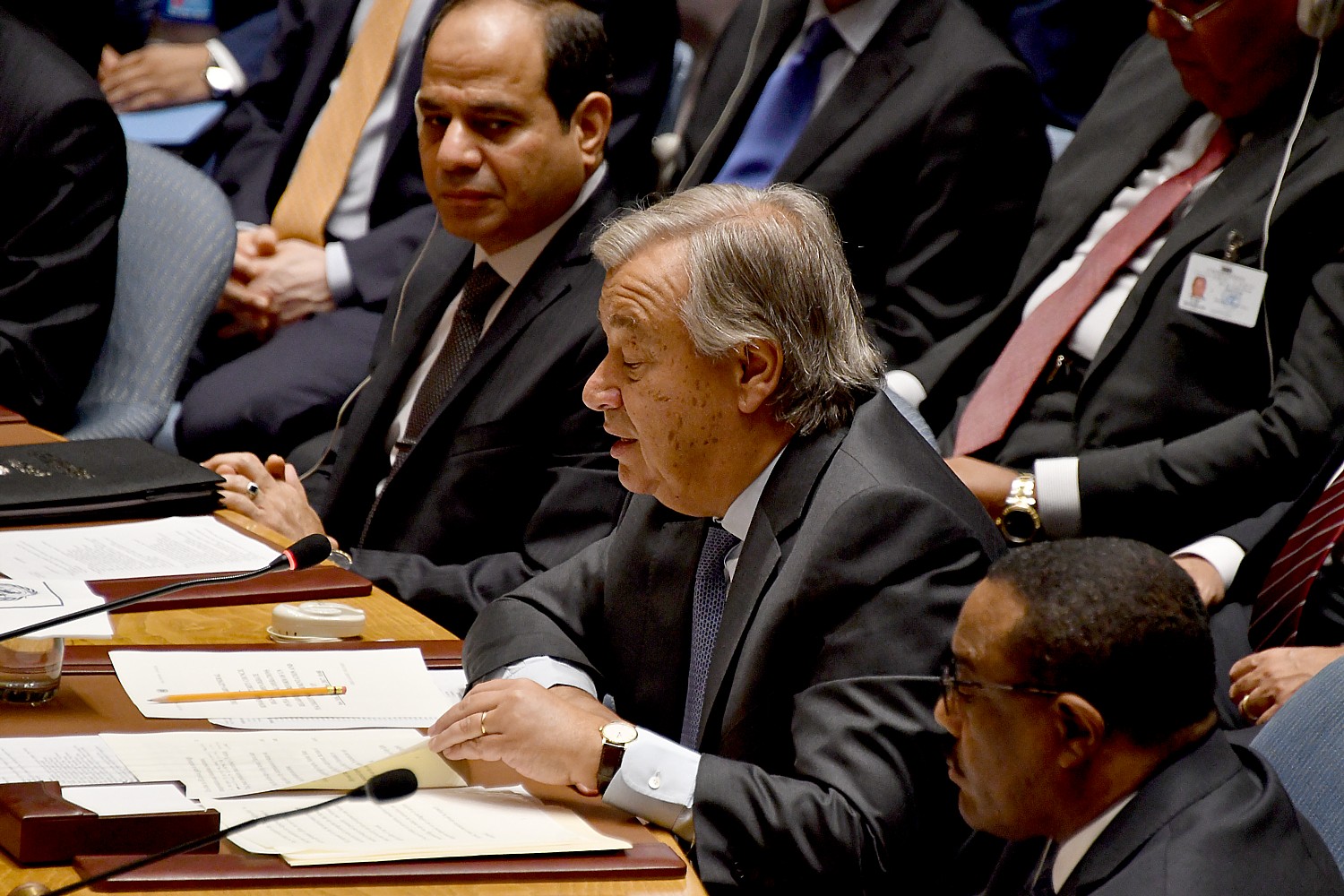
The United Nations must make several critical shifts, he said. It must recognize the primacy of politics so that peace operations were deployed in support of active diplomatic efforts, and not as a substitute. If the Organization did better on prevention, it could reduce the dangerous demands on colleagues in uniforms. Peace operations should be properly prepared, with more mobility, better equipment, enhanced training and intelligence. They should also embody United Nations values, and sexual exploitation and abuse must be stamped out. Member States were now certifying, prior to deployment, that none of their personnel had a prior history of misconduct, and the Organization had just appointed its first victims’ rights advocate. The partnership with the African Union, with African States assuming important responsibilities for their continent, was key, as was working with the European Union.
Peacekeeping forces were not supposed to perform counter-terrorism tasks, he said, and complementarity between United Nations and regional organizations was key. Clarity of mandates and adequate funding was vital to peacekeeping work. In the coming months, the implementation of reforms would move forward, as the Organization worked to adapt peacekeeping operations to meet old and new tests alike.
MOUSSA FAKI MAHAMAT, Chairperson of the African Union Commission, said the debate provided an opportunity to examine financing approaches and bolster the partnership with the United Nations. Given their unique position, African Union peace operations should be supported through United Nations-assessed contributions, he said, emphasizing that sustainable solutions required sustainable financing. Decisions should be made on a case-by-case basis resulting from joint analyses of each situation, he said, adding that “our institutional credibility is at stake”. Chapter VIII of the United Nations Charter highlighted the role of regional organizations in maintaining international peace and security.
With that in mind, judicious decisions about missions must be made, he said, pointing to recent examples in Mali and the Central African Republic. Taking such an approach to financing was “not a matter of charity, but of fairness”, he said, calling on the Security Council to make decisions that encouraged the notable progress of the African Union and its member States. Reaffirming the importance of the strategic partnership between the African Union and the United Nations through a resolution on the principle of financing, he said “we must cut the red tape that hampers us from achieving the desired results”.
JOSÉ RAMOS-HORTA, Chair of the High-Level Independent Panel on Peace Operations, said that his report’s recommendations had been well received by Member States. The document included recommendations from people from many walks of life, from police officers who saw war up close to community leaders and activists who lived amid conflicts. He acknowledged the extent to which former Secretary-General Ban Ki-moon had embraced the recommendations, and the consideration they had been given by the General Assembly and the Security Council. But the essential shifts advocated by the Panel remained to be achieved.
The three peace and security reviews of peace operations, peacebuilding architecture and the implementation of the women, peace and security agenda, converged on the crucial need for more effective conflict prevention and for working to sustain peace before, during and after conflict, he noted. The current Secretary-General had made a strong commitment to prevention and the necessary “surge of diplomacy”, which was reflected in his insistence on an integrated system-wide commitment to prevention. National leaders and stakeholders had the primary responsibility to prevent conflicts and engage in mediation, and the Organization should seek to support local and regional prevention and mediation partners. The report emphasized that the United Nations should invest in its own capacities for prevention and mediation and in its capacity to help others. Those core functions should be funded through the Organization’s regular budget.
Former Secretary-General Ban Ki-moon had asked the Panel to review peace operations, not peacekeeping missions alone, he noted. That should lead to a continuum of responses and smoother transitions between different phases of missions. The proposals for restructuring the peace and security pillar that Secretary-General Guterres had now outlined met the Panel’s two most major concerns. The management of both peacekeeping operations and large field-based special political missions by the same department would enable situation-specific responses tailored to context and smoother transitions as those contexts evolved. The single political-operational structure under regional Assistant Secretaries-General that would link the two reconfigured departments would not only overcome duplication and rivalry, but would also ensure that peace operations were designed and managed within their regional context and in closer consultation with the relevant regional organizations.
The Council had been concerned to see reviews of individual peace operations carried out, and the report recommended a review of long-standing missions to assess their effectiveness, he said. The Panel addressed the shortcomings of the Secretariat’s policy, analysis and strategy development processes, and stressed the need for a core capacity for strategic analysis and assessment, including in the planning and review of peace operations. The Secretary-General’s establishment of a Strategic Planning and Monitoring Unit in his Executive Office was precisely the reform required to ensure better planning and reviews.
The Council’s decisions in mandating peace operations based on such planning and reviews should always reflect the primacy of politics, he said, and he hoped the Council would be stronger in its insistence upon and support for the political strategies that peace operations were deployed to pursue. Both the Brahimi and Panel reports emphasized that mandates and resources, expectations and capabilities must be in alignment if peace operations were not to be set up for failure. The emphasis placed in the report on partnerships with regional organizations, particularly the African Union, was important, and he welcomed the Joint United Nation-African Union Framework for Enhancing Partnership on Peace and Security launched in April.
The Security Council then unanimously adopted resolution 2378 (2017).
Statements
HAILEMARIAM DESALEGN, Prime Minister of Ethiopia and Council President for September, said the resolution’s adoption held particular significance to his country. As a troop-contributing country, Ethiopia took pride in participating in peacekeeping operations and believed that the Council had a key role in strengthening peacekeeping in authorizing deployment and reviewing operations. Yet, as much as reform was important, the Council did not have a dedicated debate on the issue until now, at a critical time, during the opening of the General Assembly session when Heads of State were present. For its part, the Council must send a clear message of support for the Secretary-General’s reform efforts. Enhancing partnerships was a key area, as the United Nations could not handle new and emerging peace challenges alone, so forging such relationships was a sensible approach. To do so, practical steps must be taken through, among other things, the sharing of burdens. “There’s a great deficit here,” he said, emphasizing that African Union-led operations could and should be partly financed through United Nations-assessed contributions. “This is not only fair and appropriate, but in the best interest of security.”
MACKY SALL, President of Senegal, said that, at a time when peacekeeping operations were being targeted and sometimes faced resistance from host countries, implementing the Secretary-General’s proposal could mean that peacekeeping efforts could enter a new phase. Recent meetings with the United Nations and the African Union could help to advance progress in that regard. Pointing at the United Nations Multidimensional Integrated Stabilization Mission in Mali (MINUSMA), the most deadly operation on the continent, he said that, despite the presence of 10,000 “Blue Helmets”, “our soldiers are in a position of insecurity”. Given that sometimes peace had to be “enforced”, it was essential that missions were adequately equipped and staffed. Going forward, the Council must examine efforts to strengthen the triangular dialogue between itself, the troop-contributing countries and the host Government to foster a collective trust, with close attention paid to engaging effective mediators.
ABDEL FATTAH AL SISI, President of Egypt, recalling that his country was amongst the very first to contribute to peacekeeping missions, said that such operations should not be an alternative to preventive diplomacy and mediation. A new strategic approach must include a comprehensive, pragmatic plan and the international community must prioritize efforts to resolve conflicts, rather than “managing” them, which resulted in a lack of political solutions. Furthermore, peacekeeping operations must not substitute the role of Governments and host State institutions, nor must they become trusteeship mechanisms. In regards to certain Member States attempting to monopolize the mandate formulation and in the absence of consultations with troop- and police-contributing countries, he called for the Council to support the establishment of an effective and institutionalized triangular consultative mechanism among stakeholders. While the Security Council had the primary responsibility of maintaining international peace and security, the role of regional organizations was vital, he stressed, highlighting that of the African Union and its successful partnership with the United Nations. The potential role of the League of Arab States could also help establish peace and stability in the Arab region.

PETRO POROSHENKO, President of Ukraine, said that the United Nations must be more proactive in strengthening peacekeeping considering the growing threats to international peace and security. Previous reviews of the sector remained under-implemented in practice, but the possibility of success increased with the proactive role of the Secretary-General and a greater focus on the protection of civilians. Due attention must also be given to proper funding and sufficient capabilities, including aviation assets and other modern technologies, in the effort to move from traditional peacekeeping to “smart” peacekeeping. Commending efforts to eradicate sexual abuse by United Nations staff, he noted that Ukraine had signed the compact on the issue as part of its proud long-term partnership with the Organization’s peacekeeping efforts. Unfortunately, he stated, his country was now in need of peacekeeping services because of the Russian Federation’s aggression that had caused tens of thousands of casualties and the displacement of some 1.8 million people. He reaffirmed his request to the Council to deploy a United Nations operation and obtain a withdrawal of all foreign personnel from his country to restore its sovereignty.
MICHAEL R. PENCE, Vice-President of the United States, said that the most important mission of the United Nations was keeping the peace. Citing President Donald Trump’s words the previous day, he reiterated that everyone should put their country first, as Americans would always put their nation first. But “America first” did not mean the United States alone. He reiterated the call for fundamental reforms to United Nations peacekeeping, noting that missions should support a political solution, have the consent of the host country and have an exit strategy. When a mission succeeded, its work must not be prolonged, and when it failed to fulfill the mandates of the Council, it must be ended.
Turning to Europe, he said the Russian Federation sought to redraw international borders by force, and he also spoke of radical terrorism attacks that had taken place in Barcelona, Paris and London.
Addressing the issue of the Democratic People’s Republic of Korea, he said that the world had seen in the last few days that country’s regime deploy ballistic weapons, which threatened the world with “unthinkable loss of human life”. The Council had adopted two resolutions applying sanctions against the regime. The United States would bring its full range of power to bear on Pyongyang. “All options are on the table,” he said, noting that, if the United States was forced to defend itself and its allies, it would do so “with military power that is effective and overwhelming”.
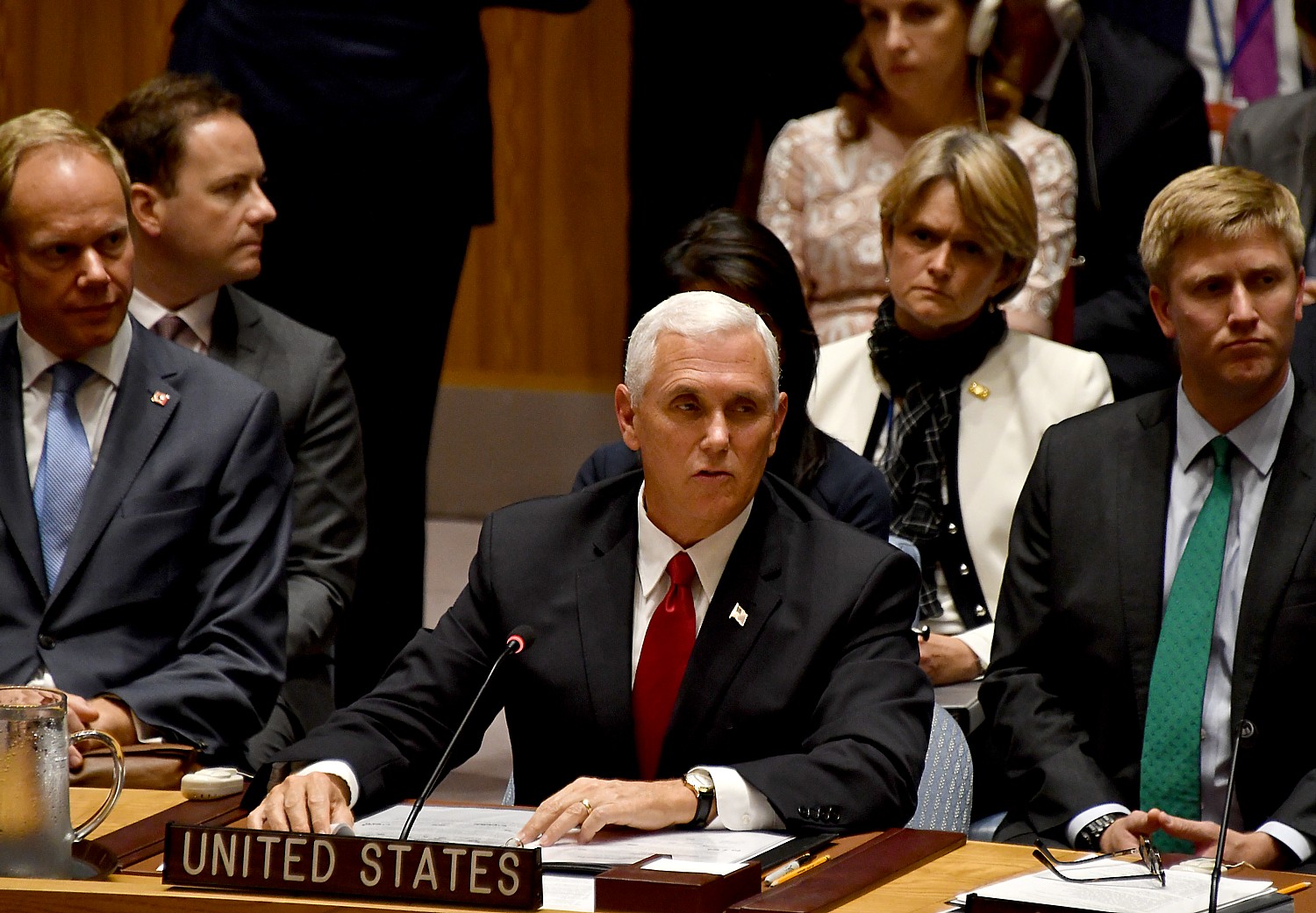
To keep peace, the United Nations needed to advance the cause of human rights, and it was no coincidence that some of the most dangerous regimes in the world were some of the worst abusers of human rights. Some were current members of the Human Rights Council, such as Cuba and Venezuela. He said that the Council also singled out Israel at every meeting, and had passed 70 resolutions condemning that State, while largely ignoring the largest human rights abusers. The Council should be reformed. Concluding, he drew notice to the “great tragedy involving Burma” that had shocked Americans and decent people, with 400,000 Rohingya people who had been forced to flee. He called on the Council and the United Nations to take swift action to bring that crisis to an end.
STEFAN LÖFVEN, Prime Minister of Sweden, honouring the memory of Zaida Catalán, a Swedish United Nations expert who had been killed on mission earlier in the year, called for the political will, courage and ability to adapt peacekeeping so that it remained relevant and adequately resourced to support political processes and solutions. To achieve that goal, emerging threats must be addressed and the root causes of conflict, often transboundary and complex, must be tackled. Stressing the need for stronger collaboration, he highlighted the African Union’s new partnership framework with the United Nations, which must be ensured sustainable and predictable financing, as well as clear cooperation on the ground. The partnership between the European Union and the Organization could be further developed, as well as the trilateral relationship between all three bodies. Peacekeeping should evolve based on evidence and lessons learned. “Seventy years of peacekeeping has taught us about the need for the full, equal and active participation of women,” he said, emphasizing his country’s efforts towards that aim. Noting that Sweden’s largest current force contribution was to MINUSMA, he underscored the need to work “smartly” and to pool resources. Recalling Dag Hammarskjöld, who had also lost his life serving the United Nations, he urged national leaders and members of the Council to choose, invest in and deliver peace.
PAOLO GENTILONI, Prime Minister of Italy, said the “Sustaining Peace” agenda required a holistic approach, a notion that the Secretary-General’s proposals had pushed further. Concrete actions must now effectively implement such an approach, he said, outlining Italy’s strategy. As a troop-contributing country, Italy had provided assistance and training based on the principle of zero tolerance for sexual abuse and exploitation. The Council had already acknowledged the role of regional organizations in providing local solutions to local problems, he said, noting the efforts of the Group of Five for the Sahel (Sahel G-5) joint force. Highlighting other efforts, including initiatives to protect cultural heritage, he said budgetary and financial support were essential to ensuring success for long-term solutions. Although not an easy task, it was the Council’s duty, as mentioned in the United Nations Charter.
THERESA MAY, Prime Minister of the United Kingdom, said the Council had a responsibility, and for peacekeepers to succeed, a political approach was needed to address conflict situations. But, politics did not end with a peacekeeping mission on the ground, and the Council must be willing and capable to discharge its duty. Given that the organ’s response to the situation in South Sudan was wanting, it should examine its own actions with a view to ensuring better planning and stronger performance by peacekeepers on the ground. Effective mission planning depended on clear mandates built on a shared understanding of the situation. More pledges were needed, but they must transform into troops on the ground, she said, emphasizing that, as peacekeeping was being reformed and adjusted, the right troops must be on hand for relevant deployment. Underlining the importance of including women in peacekeeping operations, providing all troops with necessary equipment and implementing the zero-tolerance policy on sexual exploitation and abuse, she welcomed further discussions on the resolution, regarding, among other things, finding a creative solution for African Union Mission in Somalia (AMISOM). “Together we can deliver better peacekeeping and this resolution was an important step,” she said.

WANG YI, Minister for Foreign Affairs of China, said United Nations peacekeeping operations were facing new challenges and the principles of the United Nations Charter should form the cornerstone of reform efforts. The pursuit of political settlements should remain central to peacekeeping initiatives, as enshrined in the Charter. The reform should be supported by United Nations partners, fully leverage the role of regional and subregional organizations and help to foster a sustainable security environment on the ground. In recent years, some African countries had faced security challenges and the international community must support those States to find solutions. In addition, support for capacity-building must be strengthened, including establishing permanent and rapid-response forces. Financial support must also be scaled up, he said, calling on the Council to come up with a method to finance African Union operations. As a major troop-contributing country and financial contributor, China had dispatched thousands of personnel, formed an 8,000-strong standby force, provided training to numerous peacekeepers and deployed helicopters to areas in need. Peace was hard to make and harder to keep, he said, pledging support for United Nations peacekeeping operations and the African Union.
KAIRAT ABDRAKHMANOV, Minister for Foreign Affairs of Kazakhstan, fully supported the new trajectory for peacekeeping, including structural changes as well as a strengthened emphasis on prevention. Reforms must, he commented, uphold the principles of sovereignty and territorial integrity while recognizing the obligation of States to fulfil their responsibility for the protection of civilians. He affirmed the importance of clear and achievable mandates that moved away from mere military arrangements, with more coherent programmes, new partnerships and cooperation between all organs of the United Nations system and other stakeholders. Cooperation with regional partners should be strengthened and accountability by all United Nations staff must be ensured. The latest technologies should be employed judiciously and in accordance with legal requirements. The concerns of youth and the participation of women must be integrated into all endeavours. Affirming his country’s commitment to peacekeeping as an emerging troop contributor, he stated that Kazakhstan would continue to increase preparedness training as it strove to become a regional centre for such activities.
JEAN-YVES LE DRIAN, Minister for Foreign Affairs of France, said that, in peacekeeping, results were needed to respond to crises, as were the means to do so, with the two-fold requirement being the Council’s unique responsibility. Efforts must push for more effective peacekeeping and the recognition of when to end a mission. In South Sudan, for instance, a civil war and humanitarian crisis was ongoing, while in Mali, the spread of terrorist groups made it the deadliest peacekeeping mission. But, expectations in those and some other missions must be managed. Efforts must be made to help States boost their capacity-building and security sector reform. States must be engaged in their own security, as could be seen in initiatives undertaken by the Sahel G-5 States. More broadly, tools must be developed to address emerging challenges such as terrorism and all parties must have coordinated and concerted responses to such threats. The United Nations and the African Union were helping to provide meaningful responses to crises on the continent, he said, noting the importance of settling discussions on financing. While some States were in disagreement over the financing of African Union missions, he said “that is the future”.
SERGEY V. LAVROV, Minister for Foreign Affairs of the Russian Federation, said peacekeeping needed to be tailored to the situation on the ground. Amid reform efforts and the crafting of appropriate approaches, the Russian Federation believed settling conflicts must be through political processes, including using national dialogue. The primary principle of peacekeepers must be respected and Blue Helmets should be deployed only with permission of the relevant State. Mandates that included the use of force must thoroughly be calibrated to specific situations. Given the recent trend of the Secretariat towards using intelligence units in peacekeeping, he said relevant conditions must be met and how information was controlled and maintained must be closely examined, as it would be inadmissible to loosely interpret guidelines in that regard. A key factor in ensuring international peace and security was a genuine partnership, he said, welcoming the role of regional organizations. Highlighting the important work done by the African Union, he said that only proactive efforts by Africans themselves would lead to success solutions to crises on their continent. Support was needed to help African States to deal with situations such as the flood of weapons spilling from Libya into Mali and neighbouring States, and terrorist groups’ activities in Somalia and other countries. Turning to another concern, he said a United Nations mission in south-eastern Ukraine could be an effective tool to implementing the Minsk agreements.
TARŌ KŌNO, Minister for Foreign Affairs of Japan, noted that his country had dispatched more than 12,500 personnel over the past 25 years to 27 missions, including Cambodia, Golan Heights, Timor-Leste and Haiti. Recently, Japan’s engineering units had been deployed to the United Nations Mission in South Sudan (UNMISS), repairing approximately 260 kilometres of road and developing 500,000 square meters of land. In regards to the gap between field requirements and peacekeepers’ capability and equipment, his country had been a strong partner in developing the United Nations Project for African Rapid Deployment of Engineering Capabilities in Kenya since 2015. He also stressed the importance of women in peacekeeping, as well as the human resource development of youth. Those affected and hurt most from conflicts were women and children. Women peacekeepers could provide appropriate support and address specific needs. In that regard, Japan would be hosting an outreach seminar to promote more senior women to be appointed to mission leadership positions.
ENRIQUE LOEDEL, Vice-Minister for Political Affairs of Uruguay, said that, as a troop-contributing State, his country supported the reform process to boost efficiency and effectiveness in fulfilling mandates. Peacekeeping was a critical and cost-effective tool, and while progress had been made in implementing the reports of the Panel and of the Secretary-General, the success of a peace operation largely depended on responsibility-sharing among stakeholders. The Council must remain united when discussing policy strategies in engaging actors to ensure the success of lasting solutions. While improvements had been made, they were not enough. The Council was duty-bound to acquire the concerned State’s approval for missions. Once a mission was launched, training was key to ensuring that the entire mandate could be fulfilled. Underlining the Kigali Principles, he said civilian protection was a critical component of missions. Budget and staff cuts should only be done with a thorough examination of the mandate, he said, emphasizing the role of the Fifth Committee (Administrative and Budgetary) in that regard.
SACHA SERGIO LLORENTTY SOLÍZ (Bolivia) highlighted several reform recommendations, including the Secretary-General’s proposal for a focus on prevention and new ways of planning. Dialogue, negotiation and the peaceful settlement of conflicts were essential tools, with approaches designed on a case‑by‑case basis that promoted national ownership of mandates. To prevent conflicts, strengthening dialogue and strategizing with regional organization were critical, as could be seen in cases of cooperation with the United Nations and Economic Community of West African States (ECOWAS) and the African Union. Predictable and flexible financing for peacekeeping efforts was also essential, framed by clear mandates and adequately equipped, staffed and trained missions. Regarding authorizing peace missions with the United Nations and the African Union, financing must be jointly discussed and undertaken as needed. In response to his counterpart from the United States, he said certain issues that had been discussed in the General Assembly had been brought into the Security Council Chamber today, including the Human Rights Council. The Non-Aligned Movement, representing two thirds of the Organization’s membership, had declared today their concerns about unilateral pressure, sanctions and the threat of or the use of force against sovereign States in contravention of the United Nations Charter. Highlighting many issues of concern in that regard, he called on the United States to, among other things, end its decades-long blockade of Cuba and provide economic compensation.
JACOB ZUMA, President of South Africa, noting significant advances in the peacekeeping partnership between the United Nations and the African Union, stressed the importance of predictable, flexible and sustainable financing for Union operations authorized by the Security Council. As the United Nations had primary responsibility for international peace and security, it was obligated to provide assessed contributions for such support operations, he stressed. The Council should explore implementation of each of the four financing model options that had been proposed in that vein on a case-by-case basis. It should then apply lessons learned as the process proceeded. In addition, he reiterated commitment to the revitalization of the African Union Peace Fund and support to the three windows of activity to be financed by it, with an emphasis on mediation and preventive diplomacy. By way of conclusion, he affirmed shared responsibility for bringing about peace, stability and prosperity in line with the Union’s Agenda 2063 and its programme on Silencing the Guns by 2020.
KERSTI KALJULAID, President of Estonia, while calling for peacekeeping missions to have tangible target and exit strategies, urged that operations have built-in flexibility because of inevitable volatile circumstances. Listening to those in the field, in particular mission commanders, and applying their suggestions, guaranteed automatic adaptions to the changes on the ground. Partnership with regional organizations, host Governments and local communities was also essential to achieving sustainable peace. As well, peacekeeping operations needed to be complemented with efforts to improve living conditions of affected populations, including the implementation of visible projects that created jobs and delivered basic social services in the post-conflict phase. A thorough and broad understanding of conflicts and their root causes were core to sustainable peace, she said, lamenting that MINUSMA would be left without its intelligence unit, which provided decision makers on all levels a unique understanding of the matters at hand. Research showed that peacekeeping reduced the number of civilians killed. Such operations were cost-effective, she pointed out, adding that the United Nations peacekeeping budget was less than 0.5 per cent of global military spending and was shared among all 193 Member States.
JUSUF KALLA, Vice-President of Indonesia, supported reform of United Nations peacekeeping considering his country’s long-standing support to the endeavour. For the effort to succeed, collective and strong political support was needed, he said. Cooperation between all actors was crucial. Guidelines must be translated into action. Preventive diplomacy, mediation and peacebuilding must remain interlinked. Reform, he stressed, must reflect the actual needs of peacekeepers on the ground, and training was critical. His country stood ready to contribute in that area and to promote the role of women, he added, stating that the Indonesian Peacekeeping Centre had trained personnel from 30 countries in the past three years. Describing the contributions of the Association of Southeast Asian Nations (ASEAN), he urged stronger United Nations engagement with regional organizations. Indonesia was running for a seat on the Council for the period 2019‑2020 to help create a global ecosystem of peace and stability that encompassed synergy between the peace and development agendas and to strengthen the fight against violent extremism.
KRISHNA BAHADUR MAHARA, Deputy Prime Minister and Minister for Foreign Affairs of Nepal, stressed that impartiality and accountability were core to the success of peacekeeping operations. His country had participated in peacekeeping missions for over 60 years and was the sixth largest troop contributor, often deployed in the most difficult regions. While the reform of peacekeeping was critical, such changes should be continuous and not a one-time event. Political will and participation of all stakeholders was necessary to producing the result “we all want”. Furthermore, capacity-building should be backed up with resources. To implement the reforms being called for, the Secretary-General, Security Council, Secretariat and troop-contributing countries should be working together right from the planning page. “Lets us all move and make peacekeeping successful”, he said, reaffirming Nepal’s commitment to those reforms.
ERNA SOLBERG, Prime Minister of Norway, speaking for the Group of Friends of the High-level Panel (Ethiopia and Republic of Korea), underscored that 65 million people had been displaced in recent times, the highest ever recorded. The Panel was a milestone towards making peace operations more effective. There were three areas in which the Security Council could engage. First, the search for political solutions should guide all peace operations. Differences must be overcome. Only then could there be genuine engagement. No outside engagement could substitute national and local leaders themselves. Secondly, in regards to the rapid changes around the world, there needed to be a strong global peace led by the United Nations working with regional and subregional organizations, as recently illustrated by the recent African Union and United Nations framework. She also emphasized there could be no lasting peace in the Sahel without G-5 forces being adequately resourced. Lastly, she underscored the criticalness of effective delivery in the field, including active engagement with local communities, not the least, women. Stating she was greatly encouraged by the Secretary-General’s commitment to overhaul management systems, she said that the international community could only go forward “by working together with what unites us rather than what divides us”.
LINAS ANTANAS LINKEVIČIUS, Minister for Foreign Affairs of Lithuania, said that, as a troop-contributor, his country had a great interest in making United Nations peacekeeping more efficient and conformant with current needs. Protection of civilians must remain a key priority and there must be zero tolerance of sexual abuse by the Organization’s personnel, as spelled out by the compact already signed by his country. In addition, women’s equal participation in all peacemaking processes must be further strengthened, and the deployment of women’s protection advisers and other gender experts should be further expanded. Safety and security of all United Nations personnel must remain a high priority, and should be enhanced by new technologies when applicable. He called upon Member States to unite around the complete reform initiative of the Secretary-General and fully utilize the current momentum to make the necessary advances in United Nations peacekeeping.

